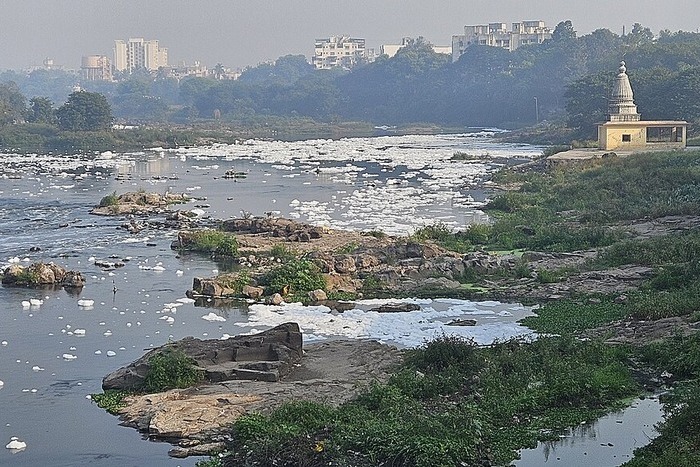The National Green Tribunal (NGT) issued notices to Uttarakhand and Jharkhand, seeking explanations for why sewage treatment plants (STPs) remain non-functional and untreated effluents continue to pollute the Ganga River, HT reported.
A compliance affidavit by the Uttarakhand Pollution Control Board disclosed that most STPs were not meeting norms and were frequently found non-operational. This contradicts claims by the Jal Shakti Ministry, which had earlier stated that water quality met bathing criteria across Uttarakhand and Jharkhand stretches of the Ganga.
Shipping’s climate deal sets up battle over pollution calculations for gas and biofuels
The International Maritime Organization (IMO) will introduce emissions intensity benchmarks for various fuels, which will determine penalties or rewards for ship operators, Climate Home News reported.
Supporters of liquefied natural gas (LNG), biofuels and a green hydrogen-based fuel called methanol are submitting proposals to the IMO, arguing for lower emissions intensity calculations, backed by governments supportive of each technology. Environmentalists call LNG a greenwash, not only because it’s a fossil fuel, but also because it has methane emissions at all stages of extraction, transportation and end use.
Advanced technology like satellites has revealed that these leaks are worse than thought. A study last year found that importing gas to burn for electricity can be more polluting than using local coal for the same purpose.
AI-powered tech supercharges ocean cleanup, boosting plastic collection by 60%
A new study found that AI algorithms can increase the efficiency of ocean plastic collection by over 60%. By optimising ship routes in real time, The Ocean Cleanup project is now able to extract more plastic per sweep, making operations significantly more effective.
“By optimising routes in real time, we ensure every sweep collects as much plastic as possible, making cleanup operations significantly more effective.” said Dick den Hertog from the University of Amsterdam.
About The Author
You may also like
Delhi set to launch its first cloud seeding operation to fight air pollution
Green court trashes Uttar Pradesh govt report on sewage treatment plants and waste management over huge gaps
46% posts in pollution boards vacant, states and UTs miss NGT deadline to fill these
Green ministry releases draft emissions targets for industry
Microplastics in air enter plant leaves, pass to animals & humans: Study


